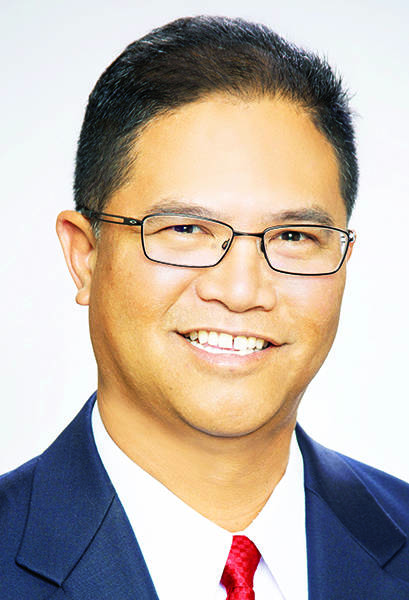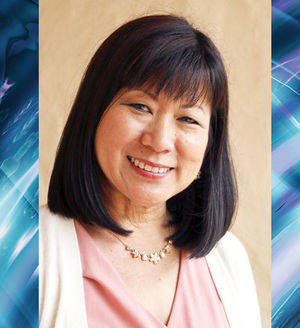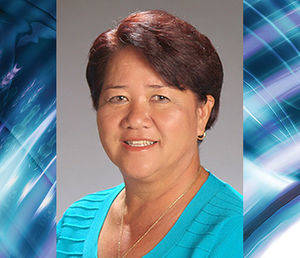LIHUE — In November’s general election, voters will consider a constitutional amendment that would give the Legislature the authority to establish a surcharge on investment real property to support public education.
“It’s an important measure,” said Sarah Tochiki, who teaches band at Chiefess Kamkahelei Middle School. “It’s a funding source that won’t affect the general population, but the ones who could afford to contribute more.”
The intent that they got from the Legislature, she said, is it’s only for investment properties that are over $1 million.
“There’s a lot of misconception in the media that it’s going to raise the cost of living in the state, but generally, people don’t live in million dollar homes,” she said.
They want people who don’t live in the state, but are making money off of Hawaii’s land with vacation rentals,to pay a little bit more so students can have technology in the classrooms, so they won’t have to share books, so they can have air conditioning, Tochiki said.
“We want to give the students the education they need in order to be able to afford those homes in the future,” she said.
A “yes” vote aims to tax second homes over $1 million, said Corey Rosenlee, president of the Hawaii State Teacher’s Association.
“We estimate that one third of all of Hawaii students go to school on a daily basis and have at least one teacher that is under-qualified,” he said.
The amendment has drawn opponents who say the bill will raise the cost of living, hurt businesses, and its vagueness doesn’t guarantee the money will actually be used for education.
The Affordable Hawaii Coalition says the state already spends close to $3 billion on public education, but its “impossible to know how much money is reaching the school,” due to lack of fiscal accountability.
Rosenlee said it’s an opportunity to fund education in Hawaii.
“There’s no one silver bullet that’s going to solve the problem, but we’re not going to solve the problem unless we fund the schools,” Rosenlee said.
Rep. Jimmy Tokioka, who voted for the bill with reservations, said he supports teachers.
He continued: “The reason I voted with reservations is because I did not like the language. I thought it needed to be clearer about what the amendment was actually going to do.”
The Legislature, he said, needs to look into how they pay and retain teachers.
“I know they have tried different ways to get a secure source of funding, but I would have rather looked at the state’s taxing abilities to help pay for our teachers,” he said.
Rep. Dee Morikawa said if the amendment is passed, she will support only certain investment properties over a certain threshold, because the most equitable funding for education is the General Excise tax.
In many other states, property taxes are used for education, but in Hawaii, the counties are not able to fund education and need the state’s help, she said in a written statement to TGI.
“I do not believe the DOE needs a larger budget, it’s already 22 percent, the largest of the general fund’s budget,” she said.
If this amendment is passed, it doesn’t mean their budget will get any bigger because they may get less from the general funds, Morikawa said.
“Many feel this is great for education, but we must be very careful with this policy and be wary of any unintended consequences it may generate,” she said.
Rep. Nadine Nakamura said she believes the measure is deliberately vague to get a pulse from the citizenry, to see if there is support for this approach.
“I voted in support of this bill with reservations. I support the bill’s intent to address low teacher pay when adjusted to the cost of living, the need to address the shortage of qualified teachers in our classrooms and special needs education,” she said.
The state needs to do more in the area of early childhood education, she said.
“I voted with reservations because the real property tax is the primary source of revenue for counties. I believe that if we are committed to public education and if we have a clear plan from the Department of Education addressing these needs that is adopted by the board of education, we should consider increasing the General Excise Tax, a statewide tax,” she said.
Nakamura said she hasn’t seen a written plan from the DOE that will clarify how funds generated by any new tax would be put to use and how outcomes will be measured.
“This type of accountability is what I’m looking for and I believe what the public needs to be assured that new revenues are being put to the best use possible,” she said.
If the amendment is passed, Tokioka said he’s concerned that it will impact local families in long-term rentals. He wants more transparency and more details in the amendment, but added he wants to be clear, he supports teachers.
He continued: “What I would propose is we need to be specific as to where the money is going to go and be fair on how we fund the teachers and not usurp the counties. The responsibility would be on the Legislature to come up with the funding.”





“It’s a funding source that won’t affect the general population, but the ones who could afford to contribute more.”
HMMMM SOUNDS REASONABLE YES? Well for starters….
— *** — *** — *** — ***
1. “impossible to know how much money is reaching the school,” due to lack of fiscal accountability.
WTH? UMMMM THATS A PROBLEM…
A. “FISCAL ACCOUNTABILITY” SERIOUSLY NEEDS BE ADDRESSED… FIRST & FOREMOST
B. WHY/HOW IS MONEY IS BEING ASKED FOR WITHOUT KNOWLEDGE & OR ACCOUNTABILITY REGARDING $ ALREADY AVAILABLE??
C. HI EDUCATION HAS THE HIGHEST $ (22%) AMOUNT… HOWEVER THESE MONIES BEING ASKED FOR (& IF RECIEVED) COULD LOWER THE STATES CONTRIBUTION…..
SOOOOOOOOO IF THATS THE CASE SEEMS TO ME $ “COLLECTED FROM THOSE WHO CAN AFFORD TO CONTRIBUTE” WON’T SUBSTANTIALLY INCREASE, IMPROVE & OR ALLEVIATE ANY REAL EDUCATIONAL ISSUES…
I read the entire article & although there are both pros & cons…. HOW can we be expected to vote on this issue WITHOUT KNOWLEDGE/ACCOUNTABILITY or any REAL PROJECTABLE IMPROVEMENTS?
AS IT STANDS NOW ON THE LACK OF FINANCIAL ACCOUNTABILITY ALONE I WONT BE VOTING YES OR YES WITH RESERVATIONS” SERIOUSLY WTH VOTING OPTION IS THAT?!
“Teachers’ union stands behind amendment”
We should expect less? More money to throw at a system chronically rated as poor…at best. Hawaii already has one of the highest per capita spending on “education” so more money will change this?
RG DeSoto
the union may support this, but not all teachers do… we are aware of the issues surrounding this bill and it makes sense(to me) to wait for a better bill that addresses accountability and gives specifics about allocation. another concern is the pandoras box that could be opened if the state is given the authority to levy property taxes without clear limits to that authority in the future.
Totally agree with both RG and VOKO6, i am not planning to support this bill, we already pay too much taxes. If the State wants to get funds for “Education” use the TAT that they took from the counties.
We already have to pay for rail, WHICH THE MAJORITY OF US WILL NEVER USE!!
We own a vacation rental that we had hoped to retire to. We have worked hard our whole lives to afford a place on Kauai. We have no children and are doing our part to stop world overpopulation. Our home generates $200,000 each year for Hawaii through the GET and TAT taxes and through payments to the many Kauaians that work on the property. Once everyone else takes a piece of what the home generates, we keep just a fraction. Just a fraction. We are not wealthy by any stretch, we just worked hard our entire lives and had no children. What will we do if we are taxed even more than we
Here in lies the problem.
You made over 1.4 mil $ per year if that’s was your tax contribution on a property that only added to our over population issues. But hey, you didn’t have 2 or 10 kids so… well that makes it okay? we’d take that over the thousands of cars on the road.
Get a grip, move to Maui…
are already taxed? We close the home down. Hawaii may still suck us for tax money, but they can kiss that $200,000 good-bye. All the natives we were paying to keep the home rentable will lose the money we paid them. Good-bye GET and TAT. Hawaii would be in better economic shape if the state elected more qualified representatives to government. Hawaii cuts off its nose to spite its face.
The undereducated local voting citizens, being taken to the Cleaners once again. With an uneducated public,the politician can sell you the Golden Gate Bridge! Wake up Citizens of Hawaii.
So this money, which is to be taken out of the pockets of low income renters and small businesses who rent from INVESTORS, goes to education. OK. But then the State just reduces the current allocation for education by the same amount resulting in the schools, teachers and students getting the same amount of funding they now get. This bill just enables enlargement of the State’s General Fund – NOT EDUCATION.
You want keiki to succeed and do well? The greatest factor in a child’s success is how much parents stress education at home. Do you go over your child’s homework every night with them? Do you push them to work hard and do their homework or do you let them go off and mess around at the beach? If you are not supervising and motivating your children to succeed with their homework, it doesn’t matter how much a teacher is paid or how qualified their teacher is. Parents set the tone and the example. No teacher can shape a great student without a caring committed parent at home. Passing off that responsibility in the hopes that taxing “somebody else” will solve the problem is a parental and societal failure.
Hawaii will continue to fare poorly because parents here aren’t personally committed to helping their children succeed. If we want to pay teachers more for their work, then everyone that has a stake in the process, especially the parents, should ante up for the expense AND the responsibility. Truth is, people that get something for free, take it for granted. And parents that continue to expect someone else to pay for and make their kids a success will continue to have children that are society’s failures.